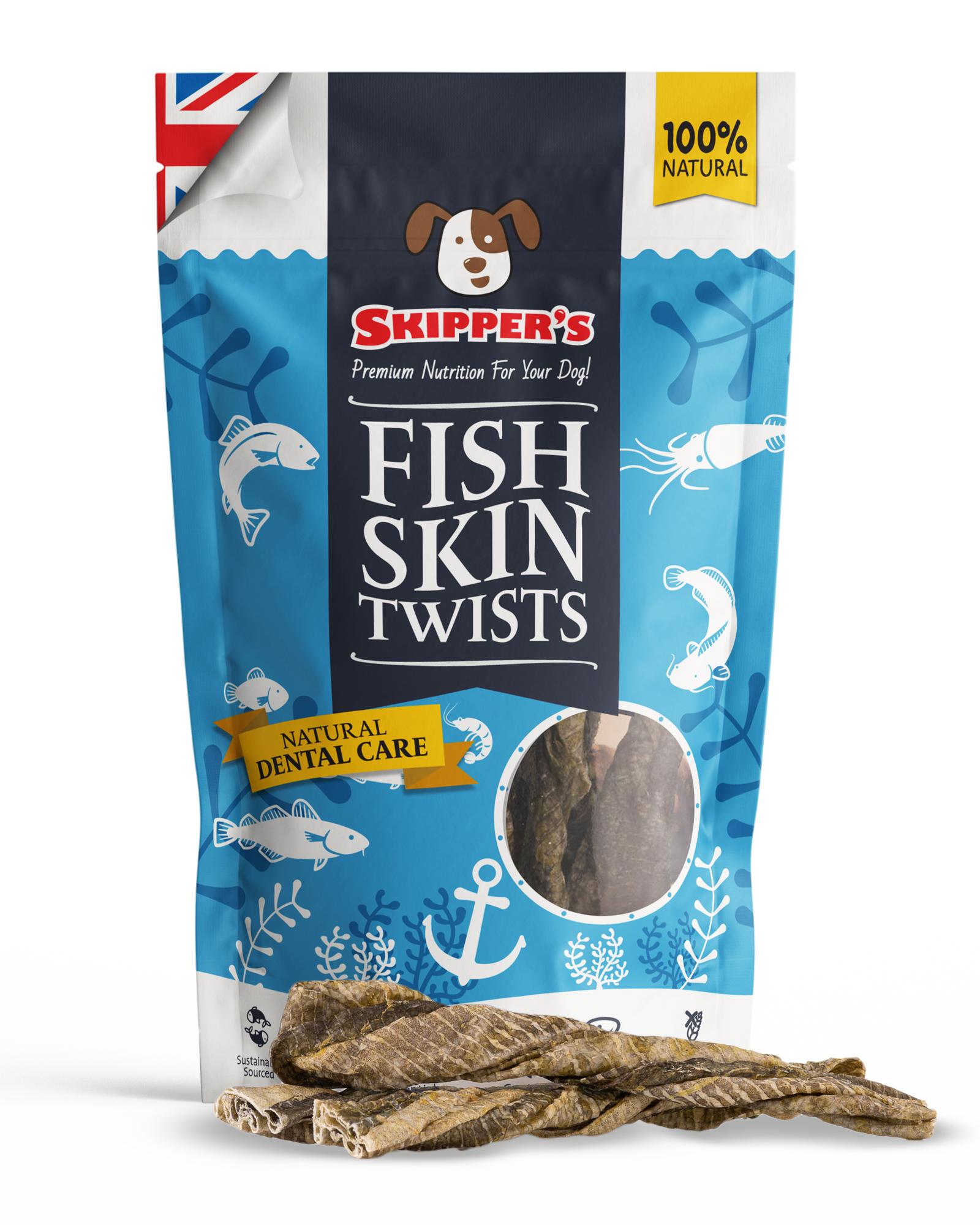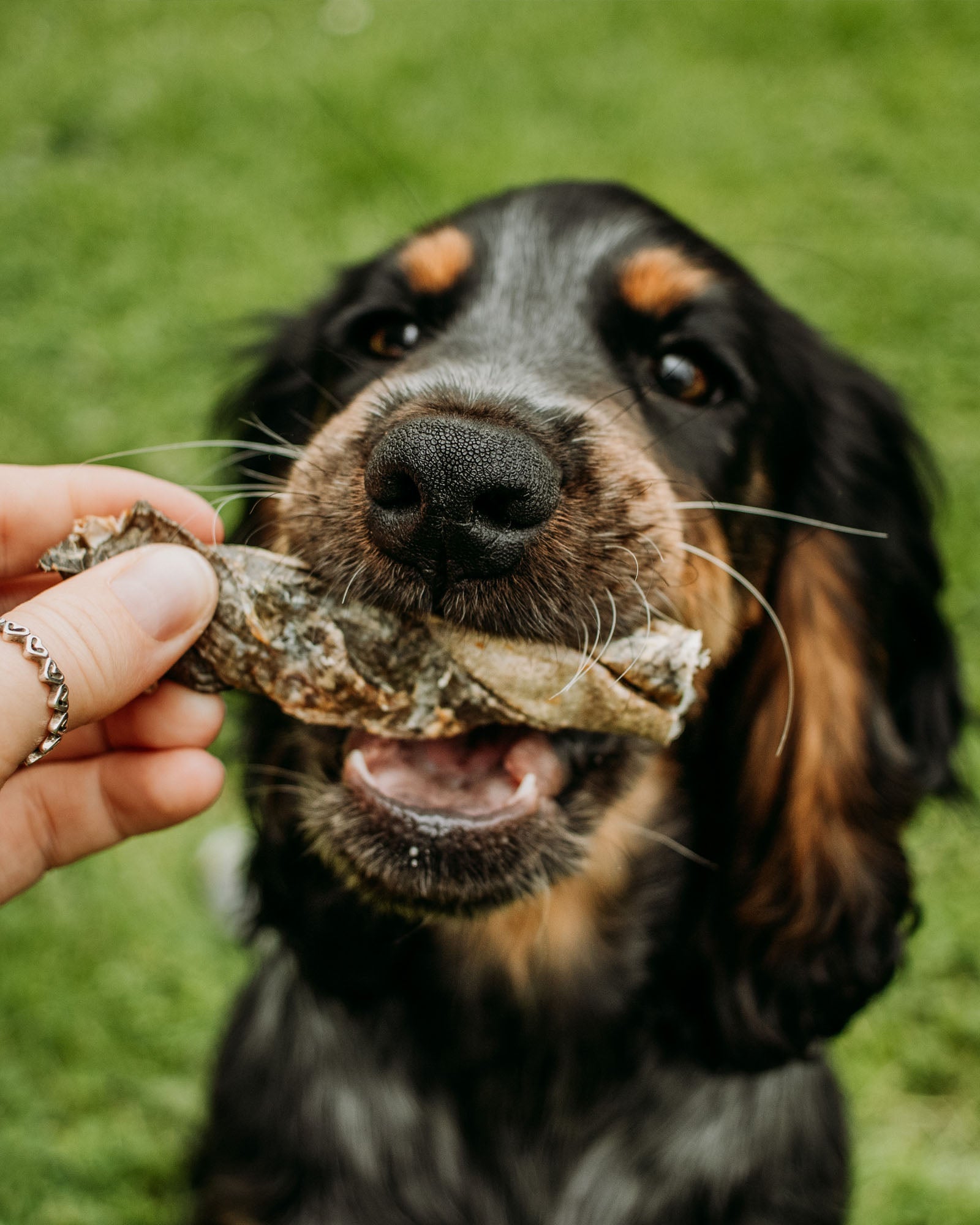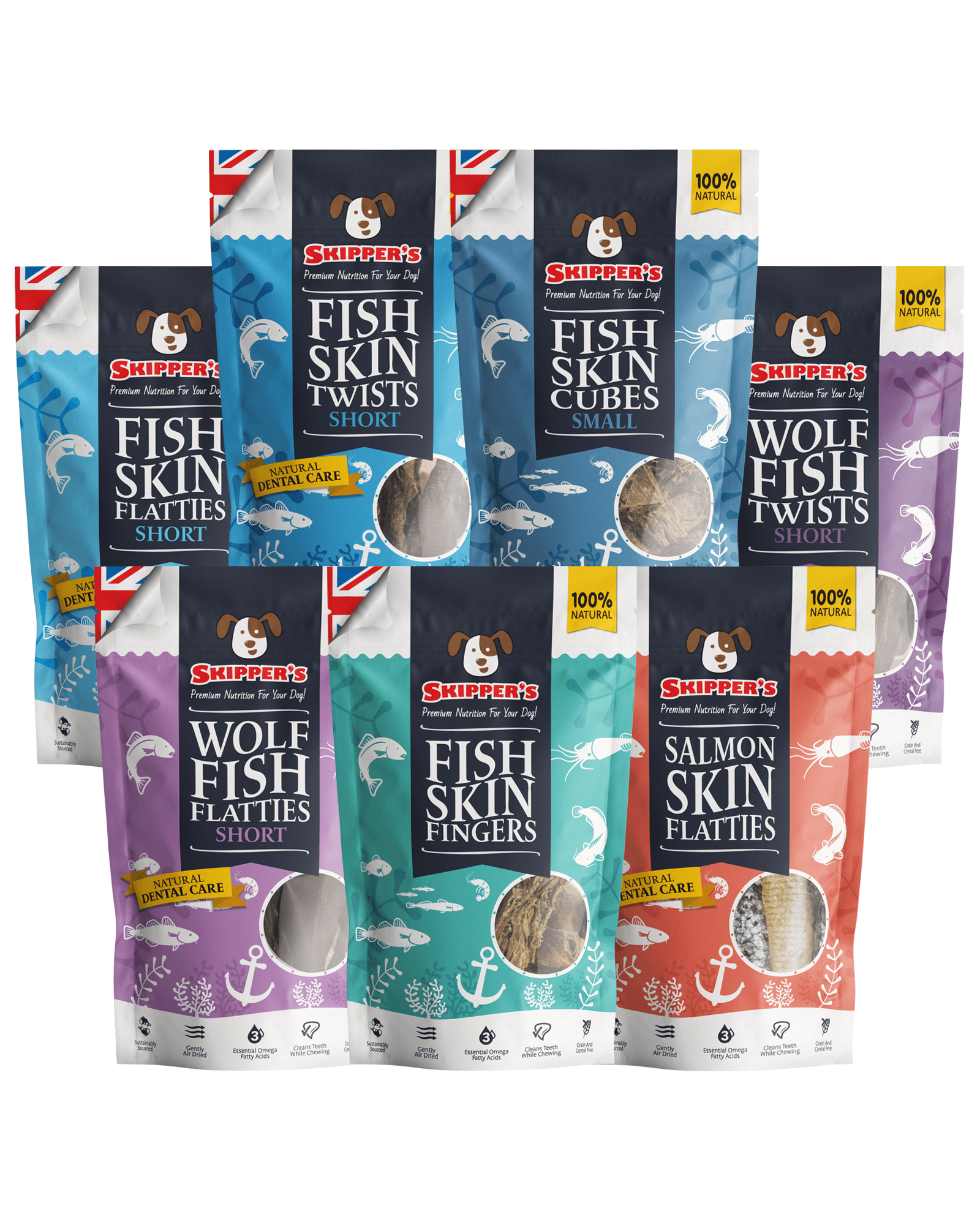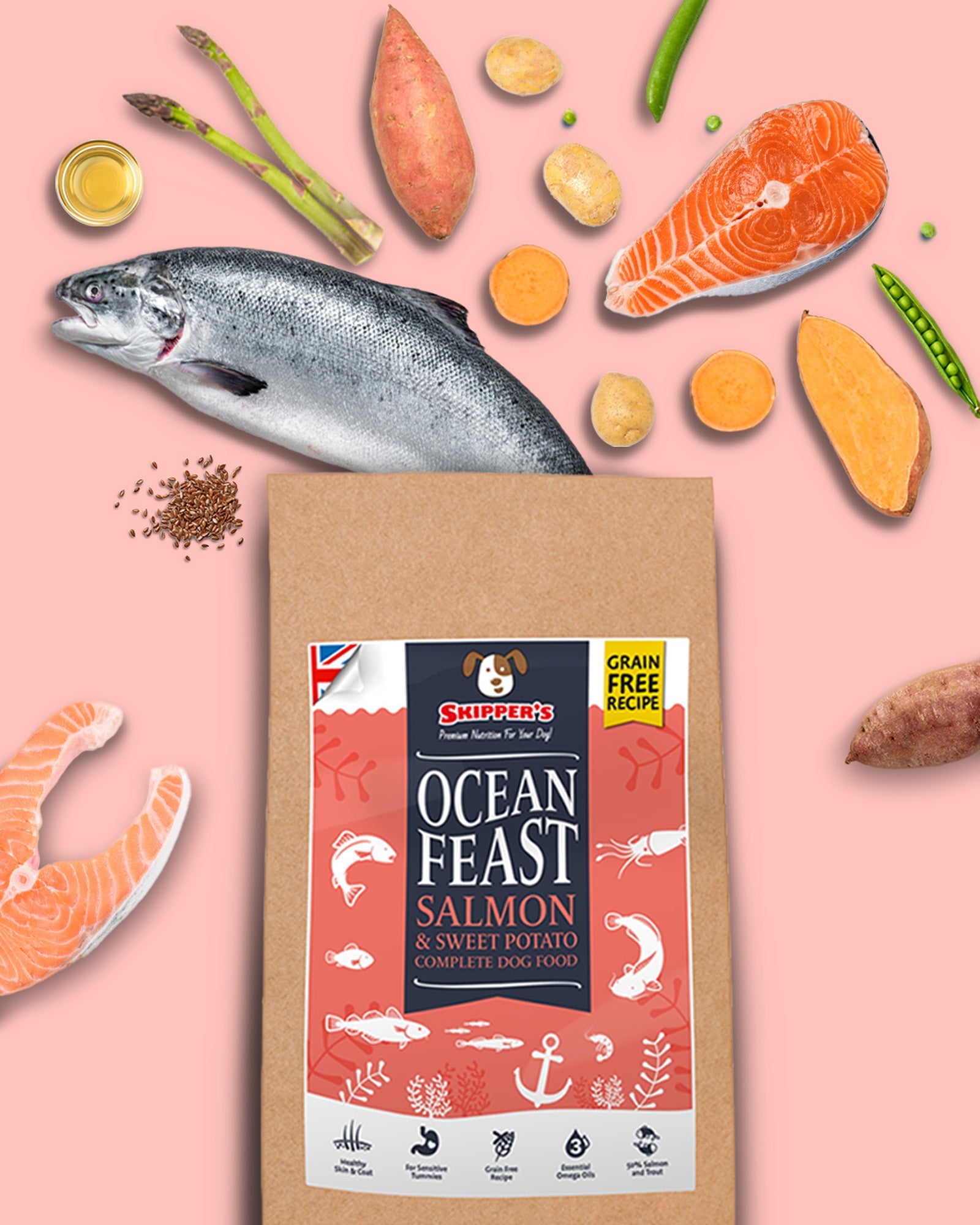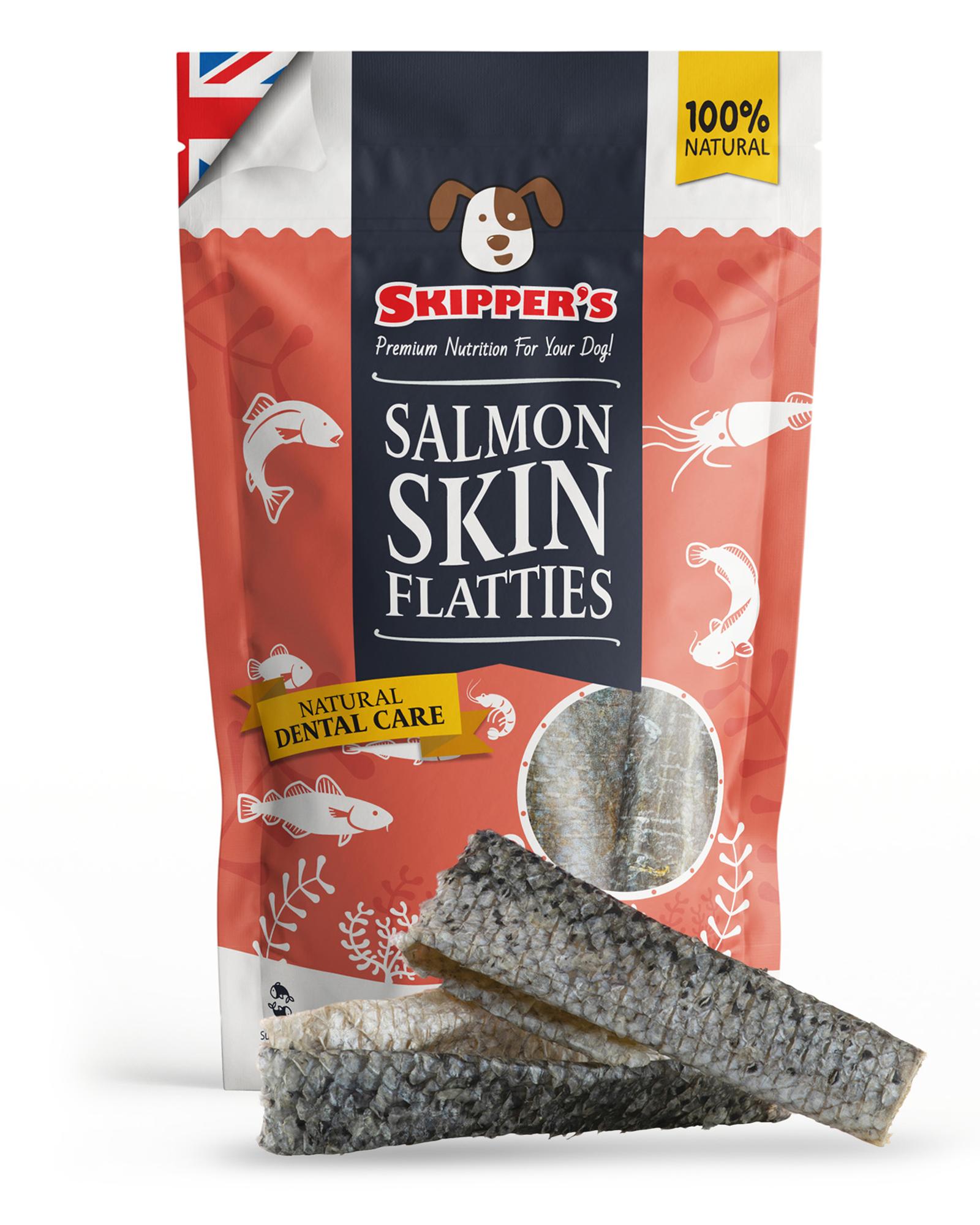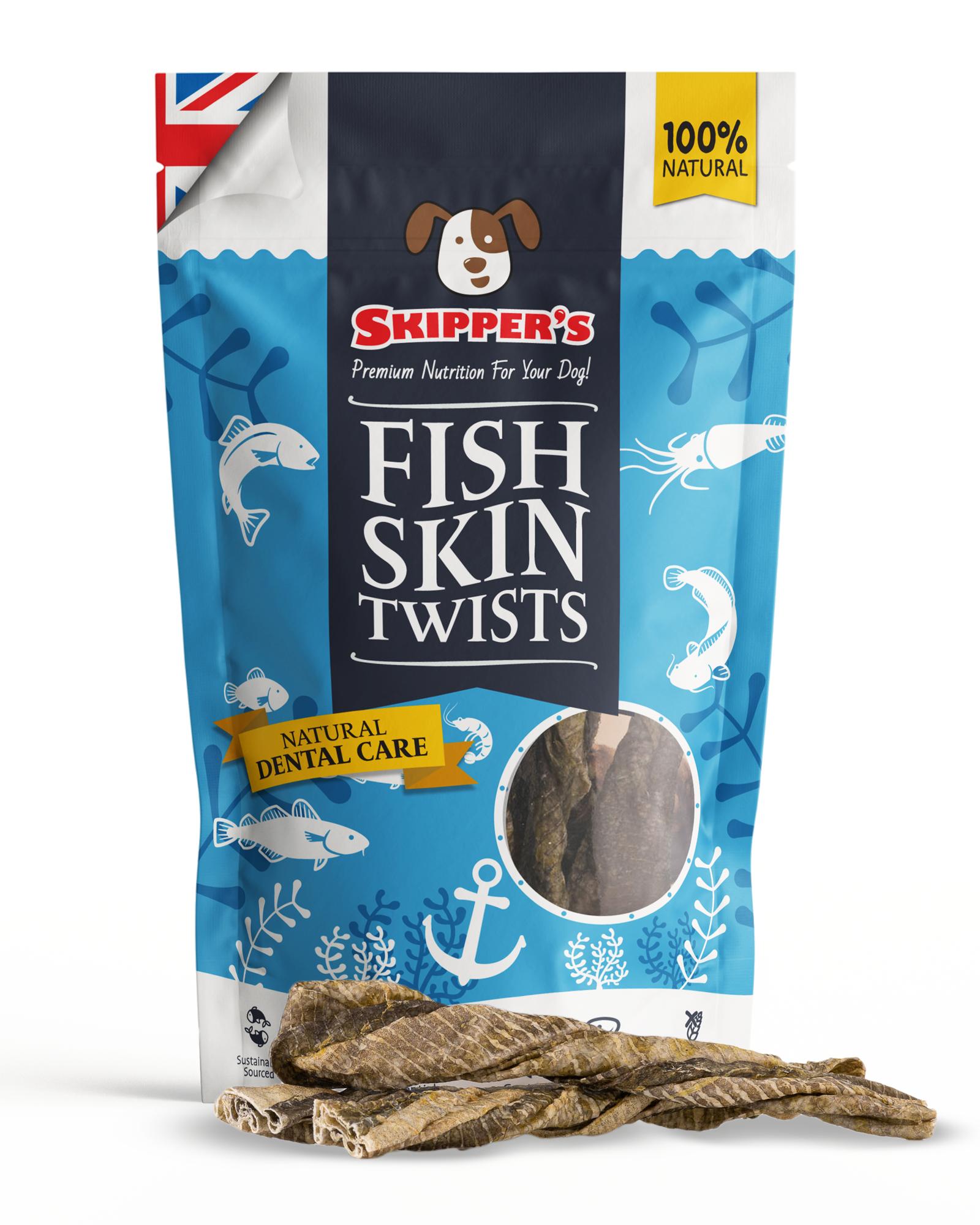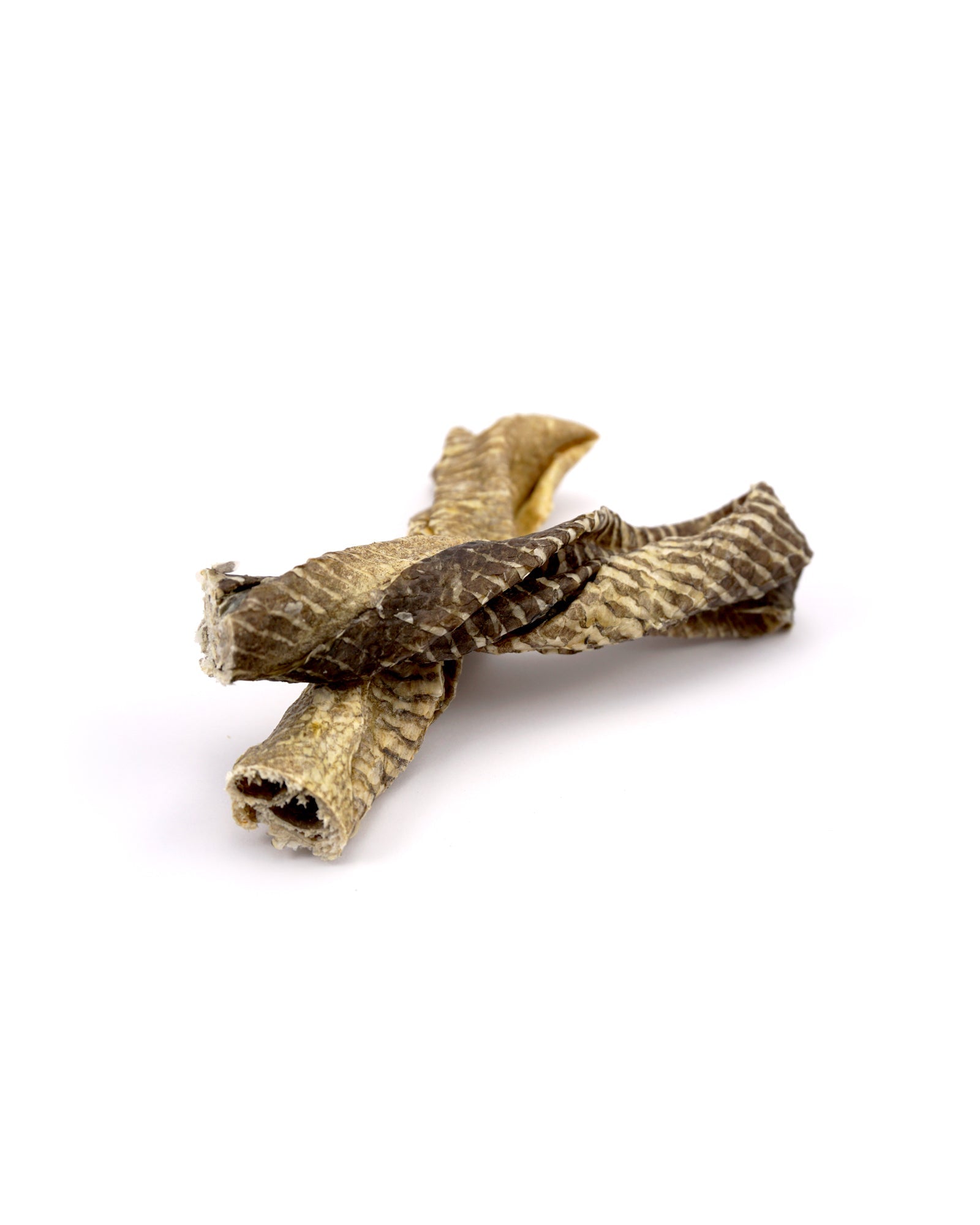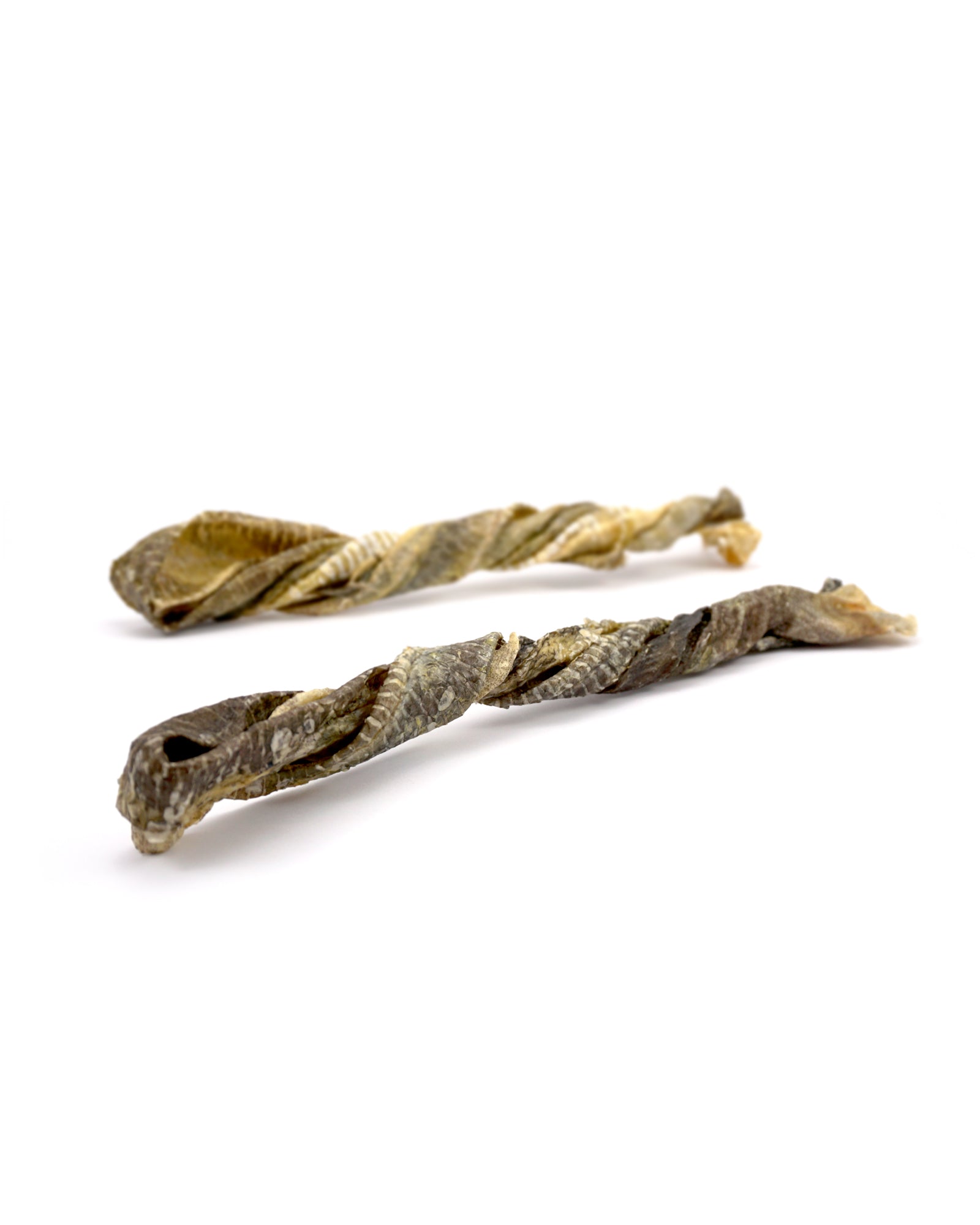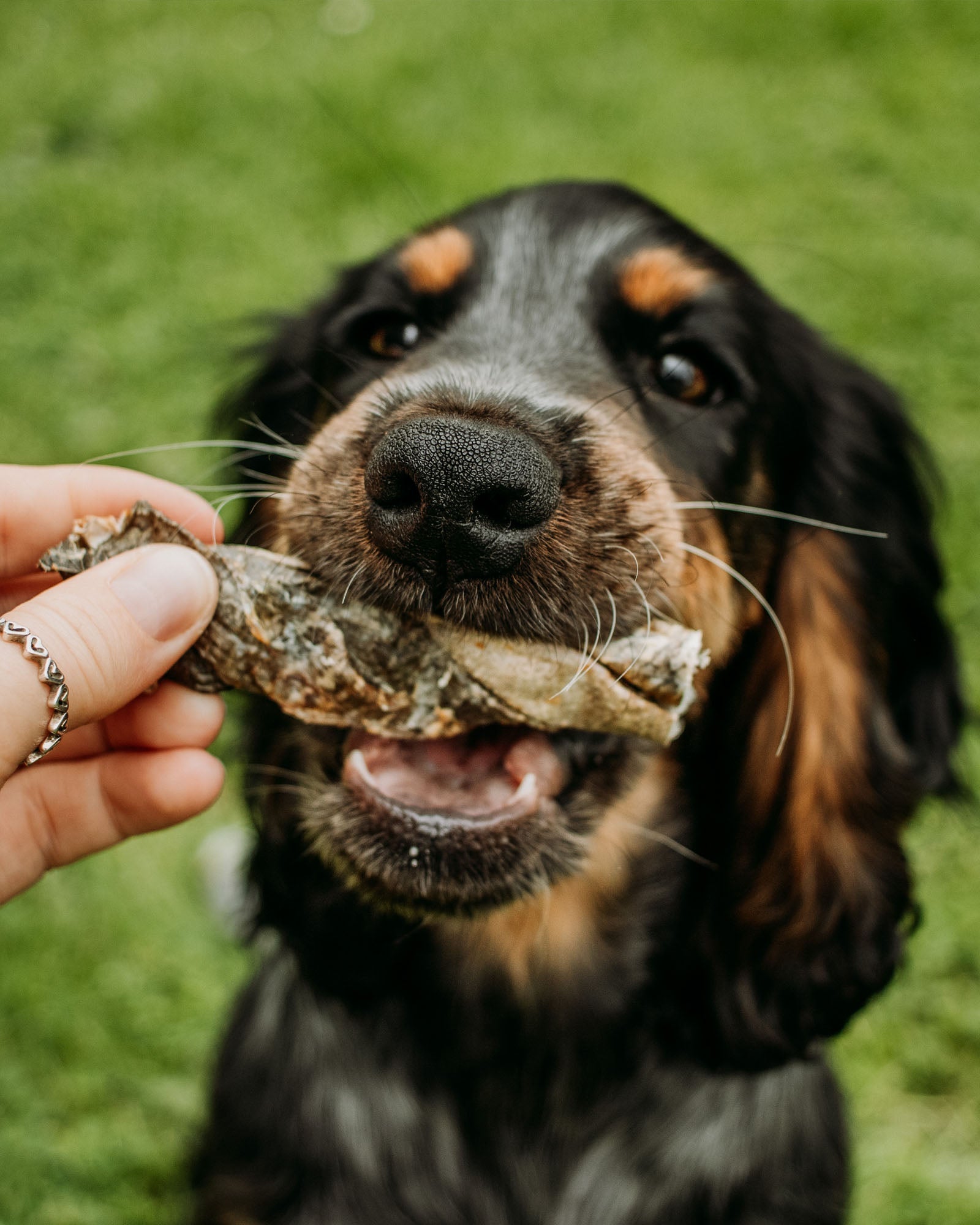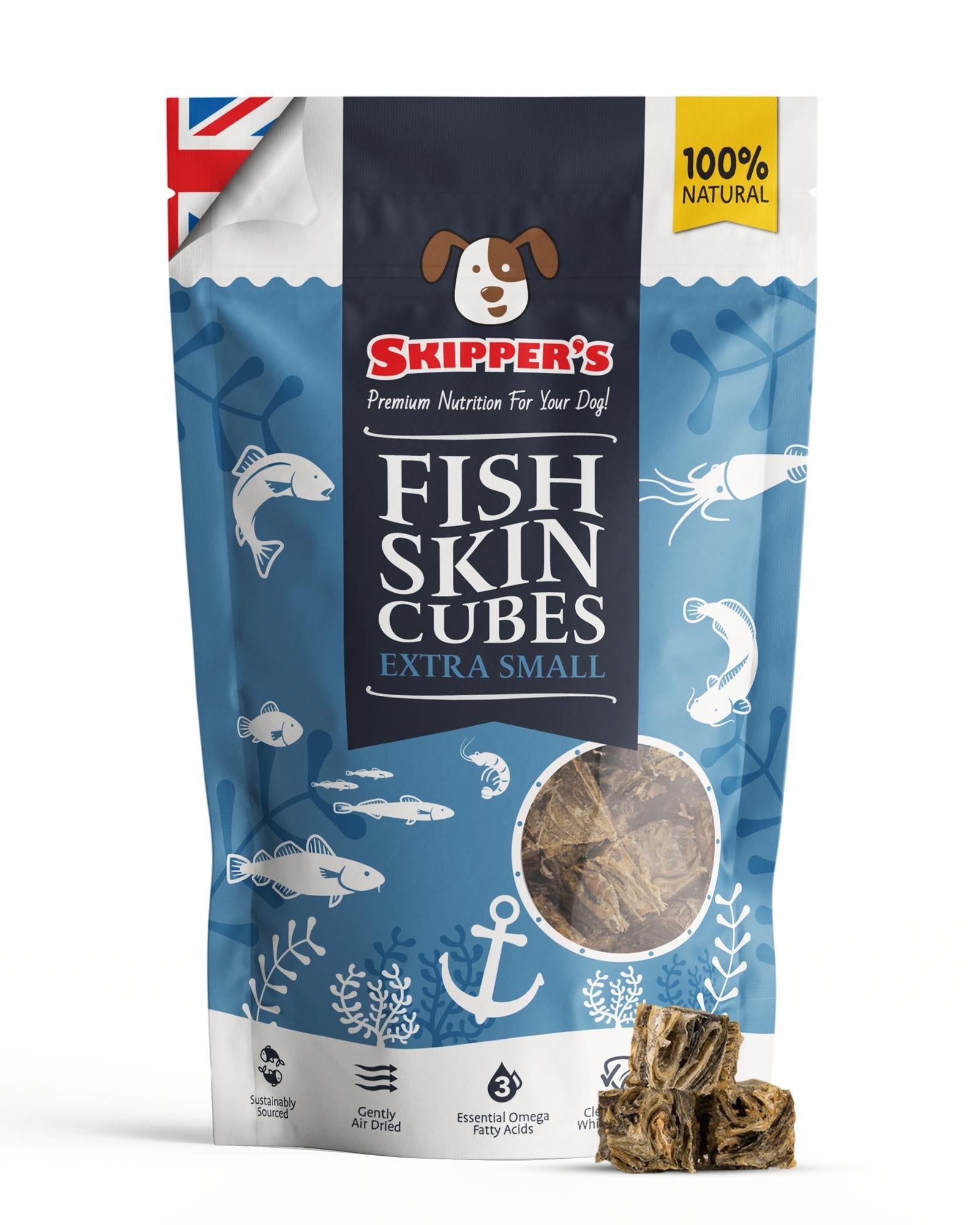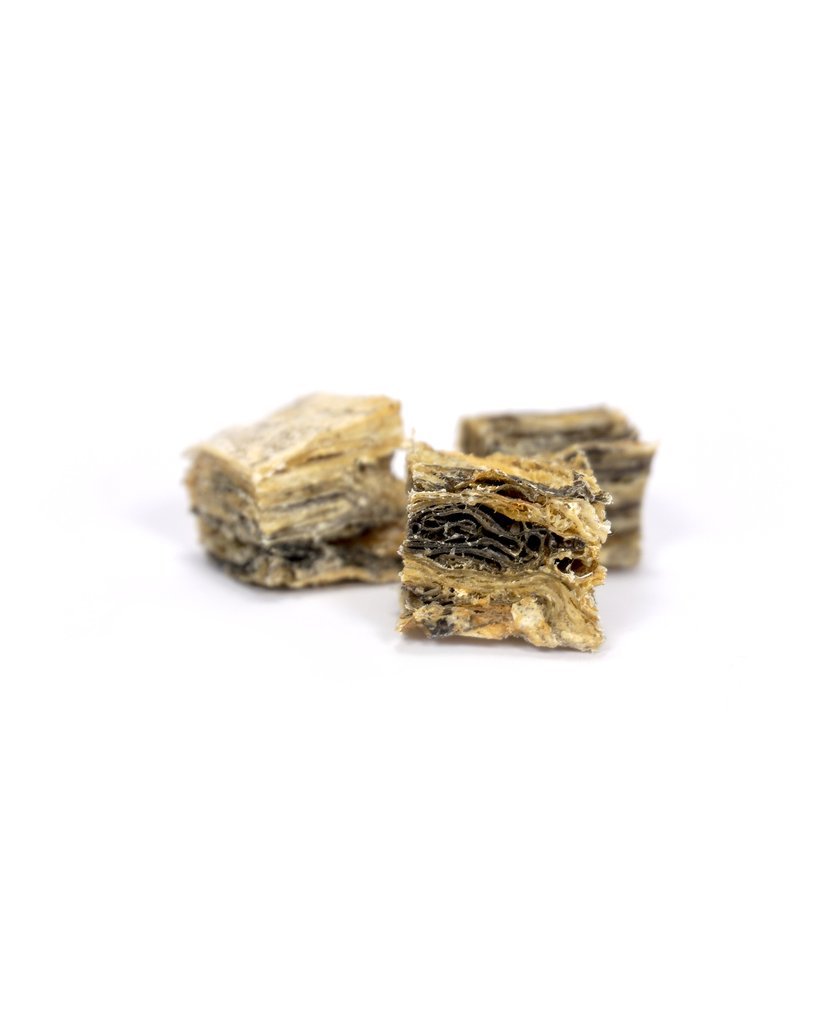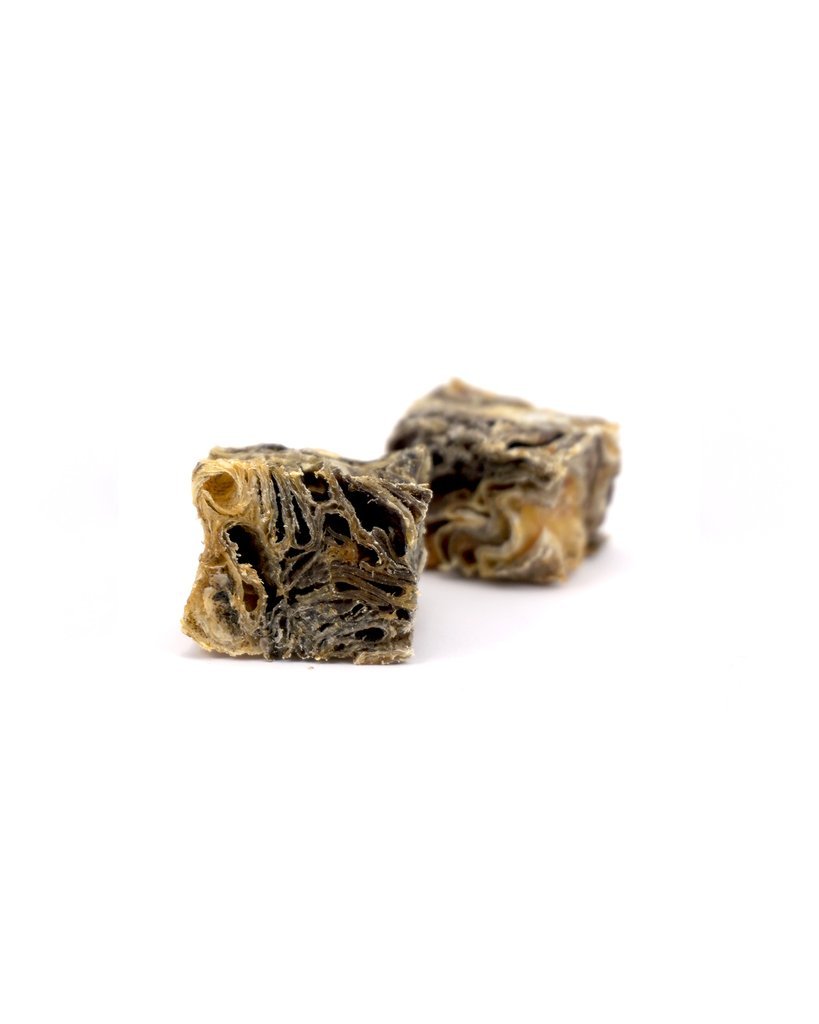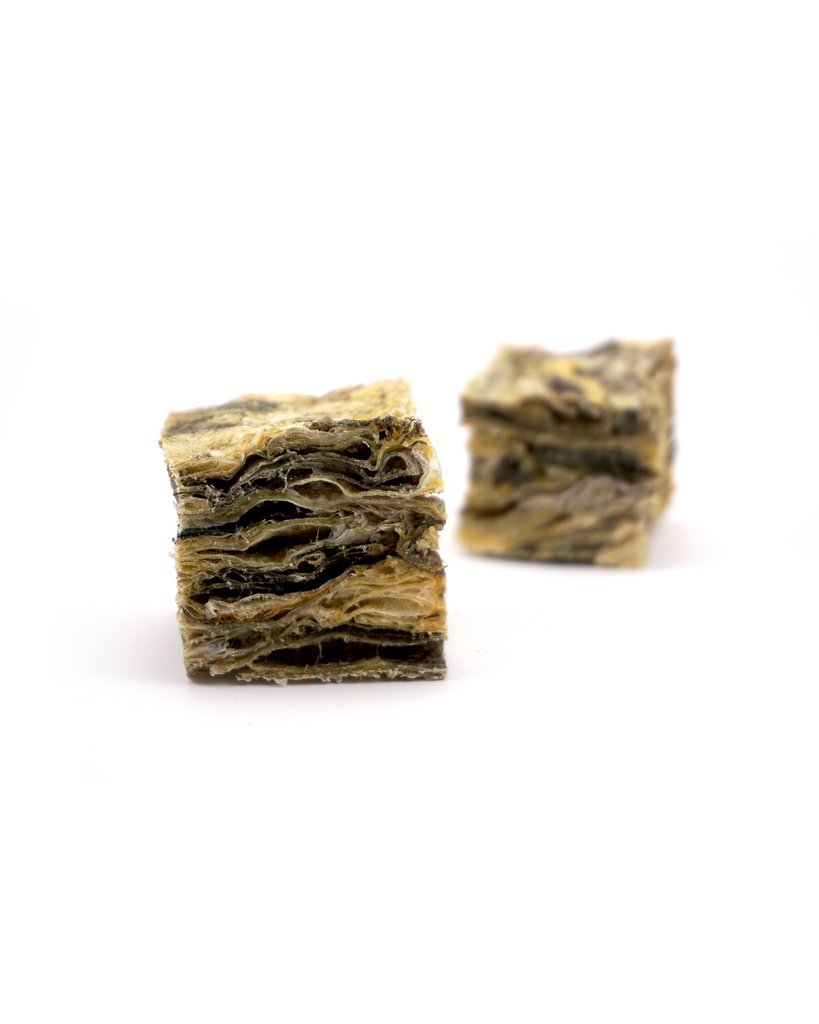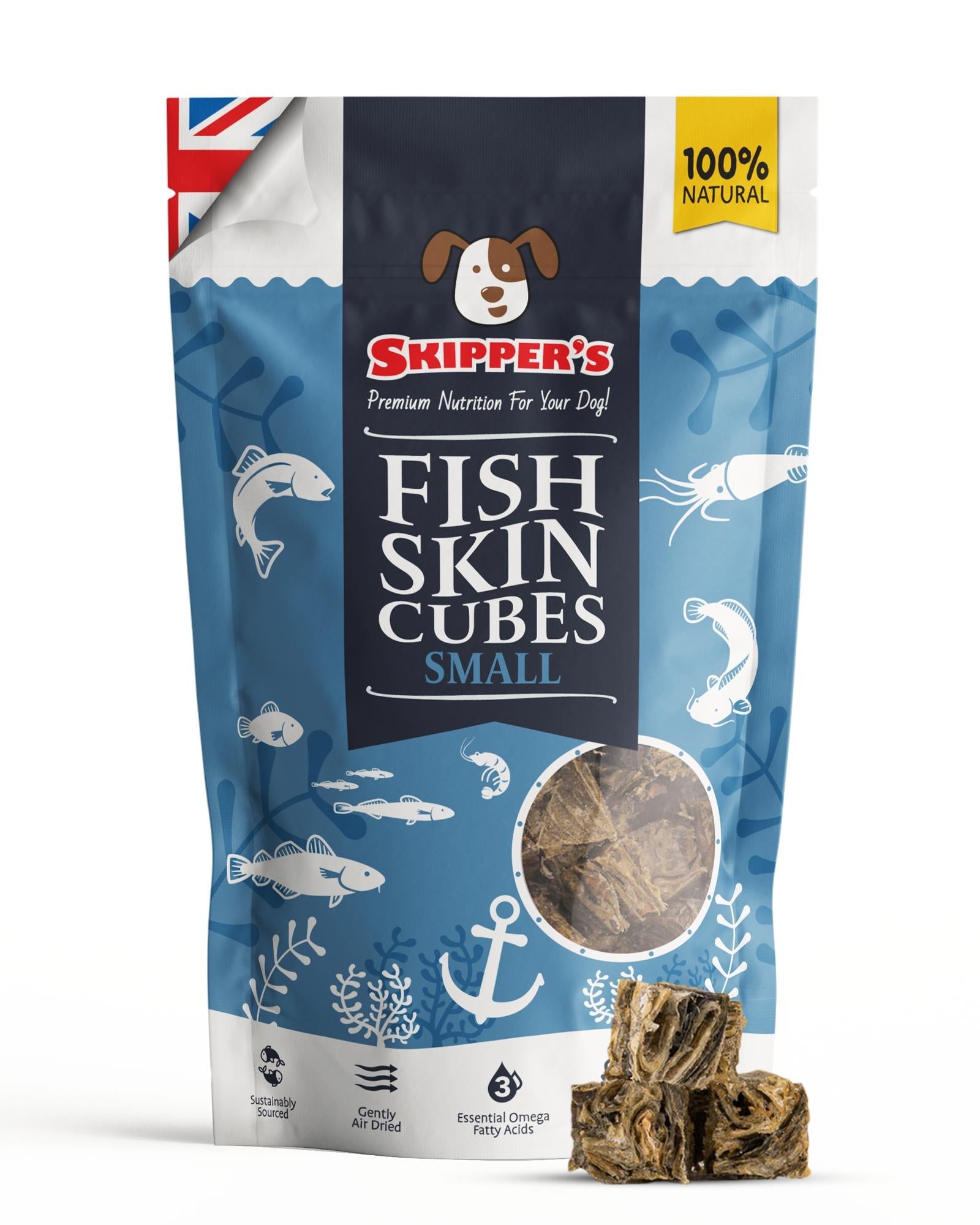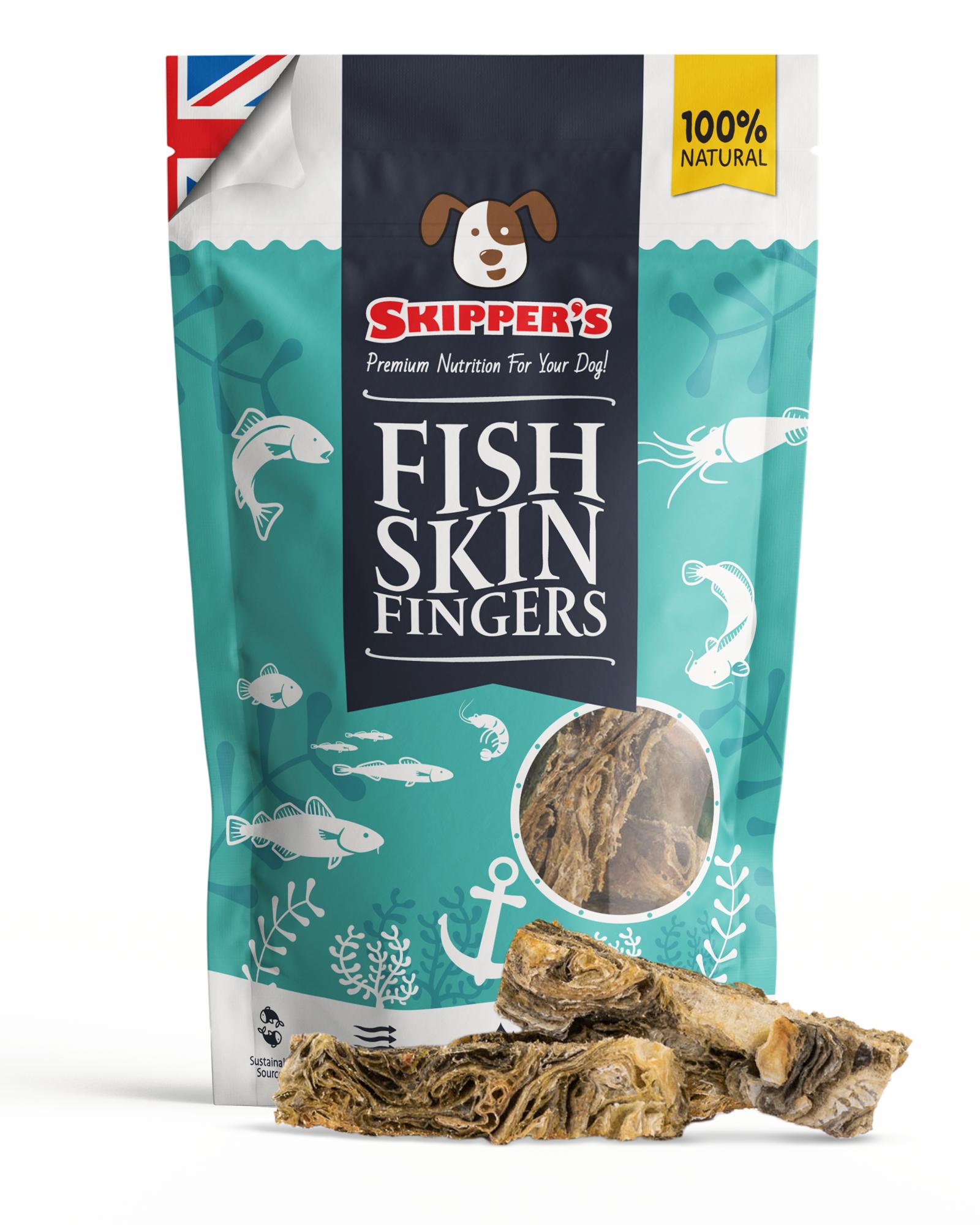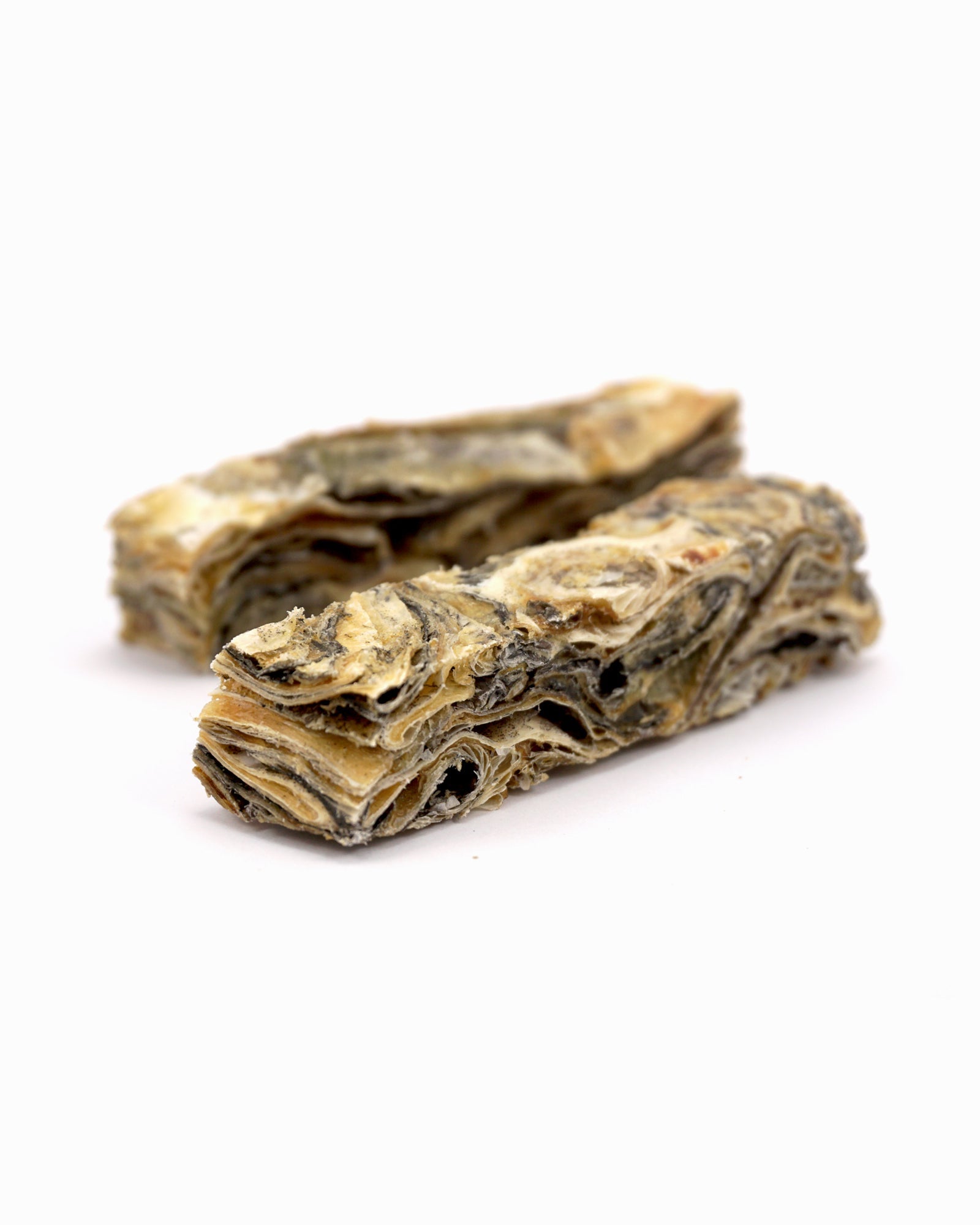
To simply put it, YES! Salmon Oil is good for your dog.
Salmon oil is packed with long and short-chain Omega 3's and 6's that deliver a wide range of health benefits to your dog.
Just like humans, dogs can not naturally produce Omega 3 fatty acids, which they need to have for a balanced and healthy diet. Salmon Oil is one of the most popular supplements as a source to include Omega 3 fatty acids into a dog's diet.
Introducing Salmon into your dog's diet, especially from when they're a puppy, is such a great addition due to how nutritionally dense Salmon and Salmon oil is. In fact, Salmon Oil is one of the top 5 brain foods for dogs!
What Does Salmon Oil Do For Dogs?
There are many benefits of Salmon Oil, but here are the top beneficial points below:
- Strengthening the immune system
- Improving joint mobility
- Calming dry, itchy skin
- Supporting cardiovascular health
- Aiding cognitive function, vision and hearing
Benefits of Salmon Oil for Dogs
Eye Health

Salmon Oil contains Vitamin A and approximately 10-12% Docosahexaenoic acid (DHA)
Vitamin A aids in your dog's eyesight development and maintenance.
Docosahexaenoic acid (DHA) is also crucial for your dog's eyes to grow and develop and is one of the best known sources for this.
Muscle Development

Just like humans, protein is essential for muscle growth.
Salmon is packed with high-quality and lean protein, which helps with building your dog's muscle and forming new skin cells.
Anti-Inflammatory Effects

Eicosapentaenoic acid (EPA), which is found in Salmon Oil, has anti-inflammatory effects as well as supports your dog's immune system. These, in turn, help with easing skin allergies.
Additionally, Salmon Oil helps decrease your dog's production of Cytokines which then reduces allergy symptoms.
Brain Development

Supplementing your dog's diet with Salmon Oil from when they're a puppy is very beneficial. Docosahexaenoic acid (DHA) is crucial for your puppy's brain to develop, especially in the first two years.
Continued use of Salmon Oil in your dog's diet even in their later years helps to maintain the health of your dog's brain.
The Omega 3 essential fatty acids (EPA and DHA) have been shown to improve your dog's mood and psychological function. This means you will have a happy and healthy dog!
Skin & Coat Condition

Eicosapentaenoic acid (EPA) improves the appearance of your dog's coat by making it look glossier and healthier. In addition to that, EPA also helps with improving the appearance of your dog's skin, such as redness or any allergy flairs.
A dull and dry coat is often associated with an unhealthy dog. Contrary to belief, dogs can be healthy and have a dull, dry coat. Being healthy with a dull and dry coat usually means the dog is deficient in Omega 3 fatty acids.
Heart Health

The heart being a muscle greatly benefits from the high-quality and lean protein that Salmon is.
Along with that, Salmon Oil allows your dog's blood pressure to be maintained at a healthy rate, as well as your dog's cholesterol and triglycerides. Therefore, Salmon Oil helps with not only your dog's cardiovascular health but also your dog's metabolism. More specifically, Vitamin B found in Salmon aids in your dog's metabolism.
Joint Maintenance

Eicosapentaenoic acid (EPA) helps with the reduction of any inflammation; this, in turn, helps to improve your dog's mobility as it reduces any stiffness, tenderness and discomforts your dog might be experiencing. This is even more beneficial for older dogs as with natural ageing, the dog's mobility will start to reduce; however, Salmon Oil can help to keep your dog's joints in the best shape possible for as long as possible.
In addition to this, the Omega 3 fatty acids increases the blood flow around your dog's body which can help to reduce any joint pain and swelling.
Vitamins Found in Salmon
Vitamin A - Can help by aiding in eyesight development.
Vitamin B - Can help by aiding in metabolism and releasing energy from food.
Vitamin D - Can help by maintaining bone health and protecting against diabetes.
Vitamin K - Can help to aid blood clotting in case of injuries.
Minerals Found in Salmon
Selenium - Critical nutritional factor for your dog's immune system.
Magnesium - Key nutrition for your dog's energy production.
Potassium - Aids in the functioning of electrical charges to your dog's heart, nerves and muscles.
Phosphorus - Maintains good kidney function in your dog.
Disadvantages of Salmon Oil
Like anything, there can be disadvantages of Salmon Oil for dogs. It is recommended to do some research on your dog breed and possibly speak with your vet or pet nutritionist to see if Salmon Oil is a suitable supplement to your dog's diet.
The side effects of Salmon Oil can be:
Oily, flaky skin - This can appear whitish like dandruff. Gastrointestinal discomfort - Your dog may show signs of decreased appetite, fatigue, constipation and more.
FAQs Regarding Salmon Oil
The most famous question, Is Salmon oil good for dogs, still remains a debate. However, Skipper's has always got your dog's back!
Will Salmon Oil help my dogs allergies?
Salmon Oil is one of the best sources to help reduce any symptoms caused by allergies, and this is because of the Omega 3 fatty acids, more specifically EPA. Salmon Oil helps to produce more collagen, which in turn improves the condition of your dog's skin and more.
By using Salmon Oil, dogs with dry and/or itchy skin create a protective barrier of strong cells.
Will Salmon Oil make my dog smell?
Not entirely. Your dog's skin and coat will not smell as long as it does not come in direct contact with the oil. However, your dog's breath will most likely smell after eating their food with fish oil. Fortunately, this can be fixed by brushing their teeth.
Does Salmon Oil help with shedding?
Yes! Due to the Omega 3 fatty acids helping to improve the appearance of your dog's coat and improve the condition of your dog's skin, Salmon Oil can help with excessive shedding.
Shedding can be caused due to itching, lack of brushing, dehydration and more. The Omega 3 fatty acids combat itchiness by alleviating any allergies that may be causing it.
Can puppies have Salmon Oil?
Yes! In fact, we recommend supplementing Salmon Oil in your puppy's food. This is because your puppy's health will greatly benefit from it. Omega 3 fatty acids aren't naturally produced in your dog's body. Therefore, fish oil is essential to include in your puppy's diet to help with brain, eyes and joint development. You can read more about how much salmon oil should you feed your dog.
Can Salmon oil benefit dogs?
There is a lot of Salmon Oil on the market, and it can be difficult to choose which Salmon Oil you should buy.
At Skipper's, our speciality and expertise are in fish and the benefits of fish for dogs. Our fish oil is Scottish Salmon Oil for dogs, and you may wonder what it is and what the benefits are of Scottish Salmon Oil.
Scottish Salmon is produced in the North and North West of Scotland. The Salmon here tend to build more muscle due to their diet and the distance they get to swim. Finally, they are also given around 28 months to develop in the cold Atlantic waters.
Scottish Salmon is rich in Omega 3 fatty acids, which are essential for your dog's diet. The richer the Salmon is, the more beneficial nutrients your dog consumes.
Can Salmon Oil make my dog sick?
Unfortunately, it can make your dog sick. This can be due to many reasons. One being the dog has been given too much of it. The simple solution, if that is the reason, is to feed the daily requirement for your dog's weight. As simple as that sounds, some dog owners can mistake the amounts as one serving suits all. This isn't true as a Chihuahua can not have the same amount as a German Shephard.
Another reason can be that your dog has an allergy to Salmon. Although these are unlikely, if you experience any of these side effects, we recommend speaking with your vet to be certain what the cause of your dog's sickness is and why.
Can Salmon Oil cause diarrhoea?
Similarly to sickness, yes, Salmon Oil can cause diarrhoea. The reasons are the same for sickness, and if your dog experiences this symptom, we recommend speaking with your vet to find the cause of your dog's diarrhoea.
Can Salmon Oil cause pancreatitis?
No. There have been no reports of Salmon Oil causing pancreatitis. In fact, it is known that Salmon Oil can help prevent pancreatitis due to Vitamin C and Vitamin E. Additionally, the Omega 3 fatty acids, more specifically EPA, has anti-inflammatory effects which help to alleviate any inflammation caused by pancreatitis.
Dogs with pancreatitis can also be deficient in Vitamin B, which Salmon Oil includes; therefore ensures your dog is getting the nutrients they need to keep as healthy as possible.
Can Salmon Oil cause itching?
For the most part, no. It is extremely rare for a dog to have an allergy to fish oil, specifically Salmon Oil. However, if your dog starts to experience itchiness from any time after you've started supplementing their food with Salmon Oil, we highly recommend speaking with your vet to check if your dog has an allergy to fish.
What are the signs your dog is lacking EPA and DHA?
- Muscle weakness
- Dull or dry coat
- Hair loss
- Eye issues
- Fatigue
What is EPA and DHA?
Both Eicosapentaenoic acid (EPA) and Docosahexaenoic acid (DHA) are Omega 3 essential fatty acids found in cold-water fish. Both are essential for your dog since they have to be sourced from their diet or supplements such as Salmon Oil. Dogs need to source their EPA and DHA through their diet because they can not naturally produce enough in their body to maintain a healthy diet.
As you've seen in this blog, there are many benefits your dog receives from consuming the nutrients from foods or supplements. These include cognitive function, skin and coat health, heart health and joint health.
If you're interested in buying Salmon Oil for your dog, visit the below link to check out our Scottish Salmon Oil.

